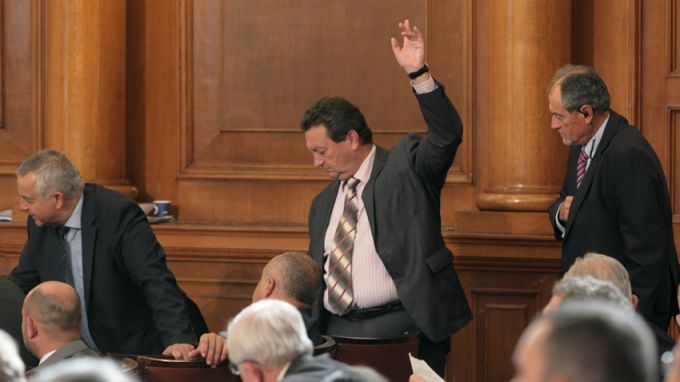
The political and parliamentary debate regarding the provision of state financial assistance to the National Electric Company has been continuing for over a week now. NEC needs that financing, in order to pay its debt to Russian company Atomstroyexport which already manufactured nuclear equipment for Belene nuclear power plant. Bulgaria's Premier Boyko Borissov informed Russian President Vladimir Putin in a phone conversation about the steps his cabinet took, in order to settle the problem between the two countries. However, Premier Borissov insisted that the interest rates levied on Bulgaria's debt should be revised. Following a tense debate Bulgaria's National Assembly officially decided to provide the National Electric Company an interest-free and termless loan. Several hours later it became clear that Premier Borissov asked Bulgaria's Minister of Energy Temenuzhka Petkova to demand legal opinion whether Bulgaria could appeal against the payment of that debt. The issue about the penalties Bulgaria has to pay for Belene NPP remains open and the political tension in that country on the eve of the Presidential elections continues to rise.
It is unclear why Bulgaria's Energy Minister started to look for legal opinion whether Bulgaria could appeal against that payment. The international law firm White & Case advised the National Electric Company that it was pointless to appeal against the decision of the International Court of Arbitration which judged that Bulgaria had to pay the Russian company Atomstroyexport EUR 620 million, including the interest rate calculated for each day of delay of that payment. This was so, because Swiss courts very rarely acknowledge such appeals and the expenses for such case would place additional financial burden to NEC, and in case of possible failure of such a trial, the equipment produced for Belene NPP may be sold very cheap, because the National Electricity Company would need money to cover its debts to Atomstroyexport.
Bulgaria's National Assembly decided to grant a state loan to NEC, so that the payment judged by the International Court of Arbitration can be made. However, the European Commission may not allow Bulgaria to provide such assistance, because it may decide that the loan extended to the National Electricity Company is in fact ineligible state assistance provided to public company. The Bulgarian government claims that it is aware of the EC procedures and would inform the European Commission about its intentions to provide state assistance to NEC. However, the EC is yet to decide on that case and it is still unclear when it would send its official stand.
The Bulgarian Socialist Party insisted that the National Assembly should fix the amount and the deadline of that payment. However the country's Parliament did not vote in favor of that proposal, which boosted political confrontation ahead of the forthcoming Presidential elections. It may become clear later during the Presidential campaign whether the current government signed an empty check to pay the Russian side, or that check was in fact signed during the government of the socialist party between 2006 and 2008, when Bulgaria paid in advance money for nuclear equipment for the second NPP without any real contract or public procurement order.
The questions regarding that case will probably go beyond the Presidential elections. The socialist party agrees that the sum judged by the International Court of Arbitration should be paid. However, they asked what Bulgaria would do from there on. That party seems to support the idea that the Belene NPP project should be restructured and that the country's cabinet should negotiate with a new potential investor. However, the opinion in the current government is prevalent that Bulgaria does not need another nuclear power plant. The loan approved by the Bulgarian National Assembly does not solve the issue about the future of the second NPP either, because that country has not reached a consensus whether it should develop power engineering in the future or not.
English version: Kostadin Atanasov
Caretaker Minister of Foreign Affairs Ivan Kondov participated in the regular meeting of the EU Foreign Affairs Council in Brussels, BTA reports. This was the first meeting chaired by the new EU High Representative for Foreign Affairs and Security..
The former finance minister from GERB, Vladislav Goranov, told the Bulgarian National Radio that there are signals indicating that a government could be formed. ''We should make every effort to form a regular cabinet - not only because of the state of..
Romanian parties form coalition to defend the country's European path Romanian President Klaus Iohannis convened the country's new parliament on December 20. The parliamentary elections, which were held on December 1,..

+359 2 9336 661
